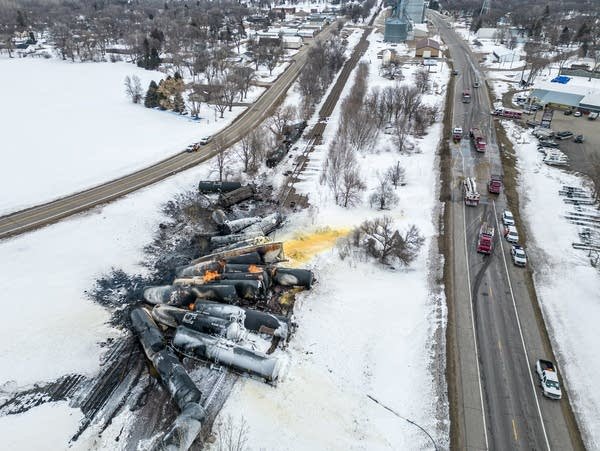FORTS Mobile Office Shelters at the Raymond, Minnesota Train Derailment
In the wake of the train derailment incident involving a Burlington Northern Santa Fe (BNSF) freight train near Raymond, Minnesota, the deployment of FORTS Mobile Office Shelters showcased an unparalleled level of efficiency and adaptability in emergency response.
A Closer Look at the Incident
The incident, which occurred in the early hours of a Thursday morning, brought significant challenges. Situated about 100 miles west of Minneapolis and 15 miles southwest of Willmar, Raymond is a location marked by its remoteness. The train, carrying 40 loaded railcars, experienced a severe derailment that resulted in 22 of its cars coming off the tracks. Among these, four cars caught fire.
The freight, mainly consisting of ethanol and corn syrup, could have compounded the emergency due to their flammable nature. However, no hazardous materials beyond these were reported on board, and most critically, there were no injuries.
The Role of FORTS Mobile Office Shelters
In such a desolate and challenging environment, the quick deployment of FORTS (Fold Out Rigid Temporary Shelters) Mobile Office Shelters played a crucial role. These shelters, known for their rapid setup capability and comprehensive features, provided an immediate and robust command center and operational base for the emergency response teams.
Key Benefits of FORTS in the Incident:
Rapid Deployment: FORTS Shelters are designed for quick assembly, which is crucial in emergencies. In the Raymond derailment, the shelters were operational in a remarkably short time, allowing for an efficient and coordinated response.
Durable and Self-Sufficient: Given the remote location, the self-sufficiency of these shelters was invaluable. Equipped with their own power, lighting, and HVAC systems, they offered a controlled environment crucial for strategic planning and response management.
Versatility in Function: The adaptability of FORTS Shelters to serve various roles – from command centers to medical units – provided the flexibility needed in such unpredictable scenarios.
Safe and Secure Operations: Despite the presence of flammable materials like ethanol and corn syrup, FORTS Shelters ensured a safe and secure base for operations, away from the immediate danger zone.
No Requirement for External Resources: The all-in-one nature of these shelters meant that external resources for setup and maintenance were minimal, a significant advantage in the remote and rural setting of Raymond.
The incident in Raymond, Minnesota, serves as a potent example of how FORTS Mobile Office Shelters can significantly impact emergency response, particularly in remote locations. Their quick deployment, coupled with their robust and versatile nature, makes them an indispensable asset in managing crisis situations efficiently and safely. As we continue to witness various emergency scenarios across different terrains, the role of such innovative and adaptive solutions becomes increasingly crucial in ensuring swift and effective responses.


